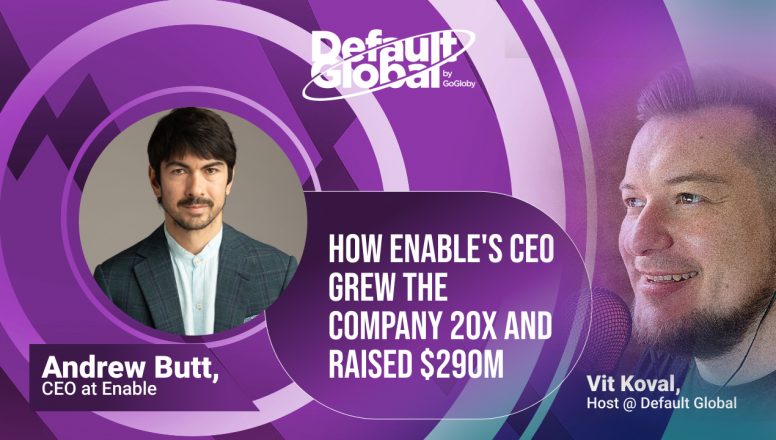Meet Gary Walker, Remote & Hybrid Work Specialist at 22 North:
Gary Walker is a seasoned consultant at 22 North, specializing in remote and hybrid work practices. With an impressive background working with renowned companies like Microsoft and Electronic Arts, Gary has been instrumental in helping organizations adopt and thrive in remote work environments. His journey in the remote work field began in 2006 when he started his own company, experiencing the challenges of remote work in its early stages. Recognizing the benefits of deep focus and uninterrupted work, Gary later spearheaded the implementation of remote work practices at a telecommunications company, building fully distributed teams and navigating the complexities of hybrid work in a traditional enterprise setting.
Passionate about the impact of remote work on families and work-life balance, Gary’s success in transforming organizations led him to venture into consultancy, co-authoring the book “Ready for Remote” in 2018. With a hands-on approach, Gary believes in continuously evolving ways of working and providing practical guidance to organizations on adopting sustainable remote work practices. As the world shifted during the pandemic, Gary witnessed a growing recognition among large enterprises for the need to establish long-term, globally distributed work models. With his wealth of experience and expertise, Gary remains dedicated to helping organizations embrace remote and hybrid work, enabling them to achieve success and navigate the challenges of the modern work landscape.
Listen Up: Gary Walker, Remote & Hybrid Work Specialist at 22 North — Full Podcast Episode on Spotify
Watch Now: Breaking Myths and Building Connections: A Remote Work Conversation with Gary Walker
Quick Read: Gary Walker, Remote & Hybrid Work Specialist at 22 North, Interview Highlights
Your book, “Ready for Remote,” discusses the best practices and principles of building and nurturing remote teams. Can you briefly share some of these principles in the context of global hiring and managing teams across different countries and time zones?
Gary emphasizes three fundamental principles that are crucial for remote team success. The first principle is trust. Trust is essential for remote work, and leaders must trust their team members to do their work effectively. Additionally, establishing the right practices and processes allows for transparency and clear communication of goals and progress. Gary also highlights the importance of security protocols to build trust in terms of identity and data protection.
The second principle is clarity. Teams should clearly understand the outcomes they are working towards, combined with the autonomy to solve problems creatively. Leaders can keep team members engaged and motivated by providing guidance rather than micromanaging.
The third principle, which Gary has renamed “visibility,” focuses on showing the work as a byproduct of the actual work. It goes beyond being physically visible online and emphasizes creating transparency and visibility around the tasks and progress made.
“So those are the three fundamental principles that haven’t changed. And I think those are the ones that if you can build those out, you will be on the right path to success with a remote organization.”
Could you provide some practical tips for entrepreneurs and executives to establish and maintain trust within globally distributed teams?
Gary suggests starting from a position of trust and assuming that team members will complete their work. Remote work relies on productivity and output rather than physical presence, making it crucial to align tasks clearly and measure individuals based on their results. Additionally, implementing security protocols and solutions can enhance trust by addressing identity and data security concerns. Trust, as a leader, is fundamental, and it is important to trust the hiring process and provide the necessary conditions for success.
“For me, it comes from, as a leader, I trust my people, I’ve gone through the process of hiring them. So I start from that position. I think it’s relatively simple. If you don’t do that, you’re not going to be successful and people are not going to want to work for the organization.”
Addressing the myth that remote workers are less productive, how can organizations ensure that their remote employees maintain a high level of productivity and engagement, especially when working across different time zones and countries?
Gary suggests measuring productivity based on output and setting clear goals and outcomes for remote teams. The focus is on the completion of tasks rather than the specific hours worked, allowing team members to work at their best times and maintain a better work-life balance. Remote teams often demonstrate increased productivity, higher quality work, and fewer interruptions compared to in-office teams. Leveraging tools for code management and task tracking enables measurement and accountability.
“Ultimately, what I say to them is I don’t necessarily care when that work is completed, but when you do your work, when you’re at your best to do your work, it’s at the end of the week or at the end of the sprint, we’re going to be able to have that visibility or has that outcome been achieved. And that’s where that productivity lens.”
What are the challenges of remote work and how companies can address feelings of loneliness and isolation among employees?
Gary acknowledged that remote work can amplify feelings of loneliness, especially during the pandemic when lockdowns limited social interactions. He stressed the importance of educating people about the true nature of remote work beyond the pandemic context. Walker highlighted the significance of building both virtual and in-person connections within globally distributed teams. Investing in annual or quarterly team gatherings facilitates meaningful connections, not just for work purposes but also for social bonding. By engaging in social activities and collaborative projects unrelated to work, teams can strengthen their connections and sense of community.
“Bringing those people together, really just to connect… not to come together to work, per se… but that’s really powerful in this building connection.”
How do you select digital tools to support remote teams, particularly for globally distributed teams spanning multiple countries?
Gary emphasized that selecting the right digital tools should focus on identifying the essential tasks and jobs that need to be accomplished. Instead of obsessing over tools, organizations should map out the digital employee experience and consider the integration and coherence of tools to ensure a single source of truth. Factors such as price, security, usability, and alignment with the organization’s long-term vision should be considered when selecting tools. Walker advised having default tools for different categories, such as communication, collaboration, and file management, to streamline workflows and enhance productivity.
“What are the jobs to be done for this team to be successful? What are the things that they need to access? And how do we make it a frictionless experience to access that information? From there, you can start to think about what are the right tools for you.”
What are the top three considerations for entrepreneurs and executives new to remote work environments and global hiring?
Gary shared his top three recommendations for a successful remote work environment. Firstly, fostering a culture of trust is paramount. This can be achieved through open communication, clear task alignment, and granting autonomy to talented individuals. Secondly, investing in the digital employee experience ensures easy access to information and tools necessary for job completion. Maintaining an up-to-date and clean information architecture is essential for a cohesive remote work environment. Lastly, Walker highlighted the significance of investing in in-person interactions through retreats and team-building activities. These opportunities allow for deeper connections, aligning visions, and building a strong community.
“Invest in that digital employee experience… making it easy for people to find information and tools to get their job done. That’s really underestimated.”






